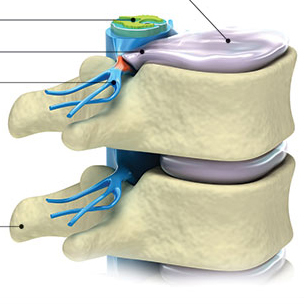FAQ
Will I need to continue to take antibiotics after I have had a total joint replacement?
If you are in good health, it is normally not necessary for you to take antibiotics following the procedure. It is, however, advisable to take antibiotics prior to dental or any other medical procedure within the first year following a joint replacement in order to prevent infection. Your orthopaedic specialist will be able to properly advise you.
After having joint replacement surgery, will I need the assistance of a walking device such as a cane or a walker?
After surgery, you should be able to walk without the assistance of a device, and you should be essentially pain-free after a full recovery. If there is overuse of the new joint, muscle fatigue may occur, causing you to require the use of a cane for a short period of time.
I am planning joint replacement in the near future and wonder what things I should take care of prior to surgery?
Good nutrition and dental care are two important things to prepare for surgery. We prefer that our joint replacement patients wait three months after surgery before having their teeth cleaned to protect from any possible infection, so a trip to the dentist prior to surgery could be beneficial. Another area that should be attended to is the foot. Toenails should be trimmed and the foot free of infection. If you have an infection anywhere in the body, be sure to see your doctor before having any surgery.
Is joint replacement a good idea at my age (82)?
We think of age as only one of the parameters when determining candidacy for joint replacement. Many patients who are chronologically in their seventh and eighth decades are physiologically much younger. More important than age are the underlying medical conditions which might shorten life expectancy or the lack of any underlying diseases and a genetic predisposition to a long life span. In any case, at 82 if you maintain an active lifestyle and are desirous of long-term pain relief, you certainly would be a candidate for the procedure. Assuming there are no medial contraindications to knee replacement, joint replacement at your age is generally safe.
My doctor told me that I have advanced arthritis in my knee. When should I consider having a total joint replacement?
We recommend waiting to have a total joint replacement until your pain becomes unbearable, normal activity can no longer be completed, and nonsurgical treatments have failed. While waiting for a joint replacement, you can minimize your discomfort with several nonsurgical options such as medication, cortisone injection, activity modification, weight loss, and the use of a cane or knee brace.
Which types of home workout equipment are safe for a patient with moderate osteoarthritis of the knee?
An exercise program is an important part of non drug therapy for patients with osteoarthritis of the knee. Exercise programs often include aerobic, range-of-motion, stretching, and strengthening exercises. Stair-steppers are usually not recommended for patients with moderate or severe osteoarthritis of the knee joints.
Regardless of the specific exercise or equipment used, remember to perform exercises in a sequential order:
- An initial warm-up involving range-of-motion and strengthening exercises
- An aerobics program
- A cool-down period of stretching exercises
I am thinking of having hip replacement surgery. How long should the new total joint implant last?
Studies show that greater than 90 percent of total joint replacements last 15 years if appropriate care is taken and all necessary precautions (as explained to you by your surgeon) are followed.
What type of shoes may I wear after total hip replacement surgery?
The best type of shoe to wear after total hip or total knee surgery is one with a low, wide heel. A shoe with good shock absorption is preferred, such as the S.A.S. brand or a tennis shoe. Dress shoes should have a wide heel (no spikes) and not be higher than 2 inches. The higher the heel the more it alters the weight-bearing forces on the joints, causing pain and wear on the joints.
Please tell me why some people have a very stiff leg for about a week after a total hip replacement, while others have no problems at all?
Some patients will have stiffness following a total hip replacement, which may last even longer than a week. This depends on the type of underlying disease for which the joint was replaced and it sometimes depends upon what was done at the time of hip replacement. Some patients, such as those with ankylosing spondylitis or severe osteoarthritis who have long-term stiffness or contractures, will tend to have more stiffness in the early postoperative period. Also, in patients who need lengthening of the operated side, many times the tissues are stretched. This causes a feeling of stiffness until the scar tissues stretches. It is also somewhat dependent upon the amount of swelling of the tissues in the postoperative period. This has to do with the fragility of the blood vessels and the operative technique. Fortunately for hip replacement surgery, even though there is a period of stiffness, many times this resolves with exercises. Should a small amount of motion not be regained, this is rarely limiting in everyday activities.







